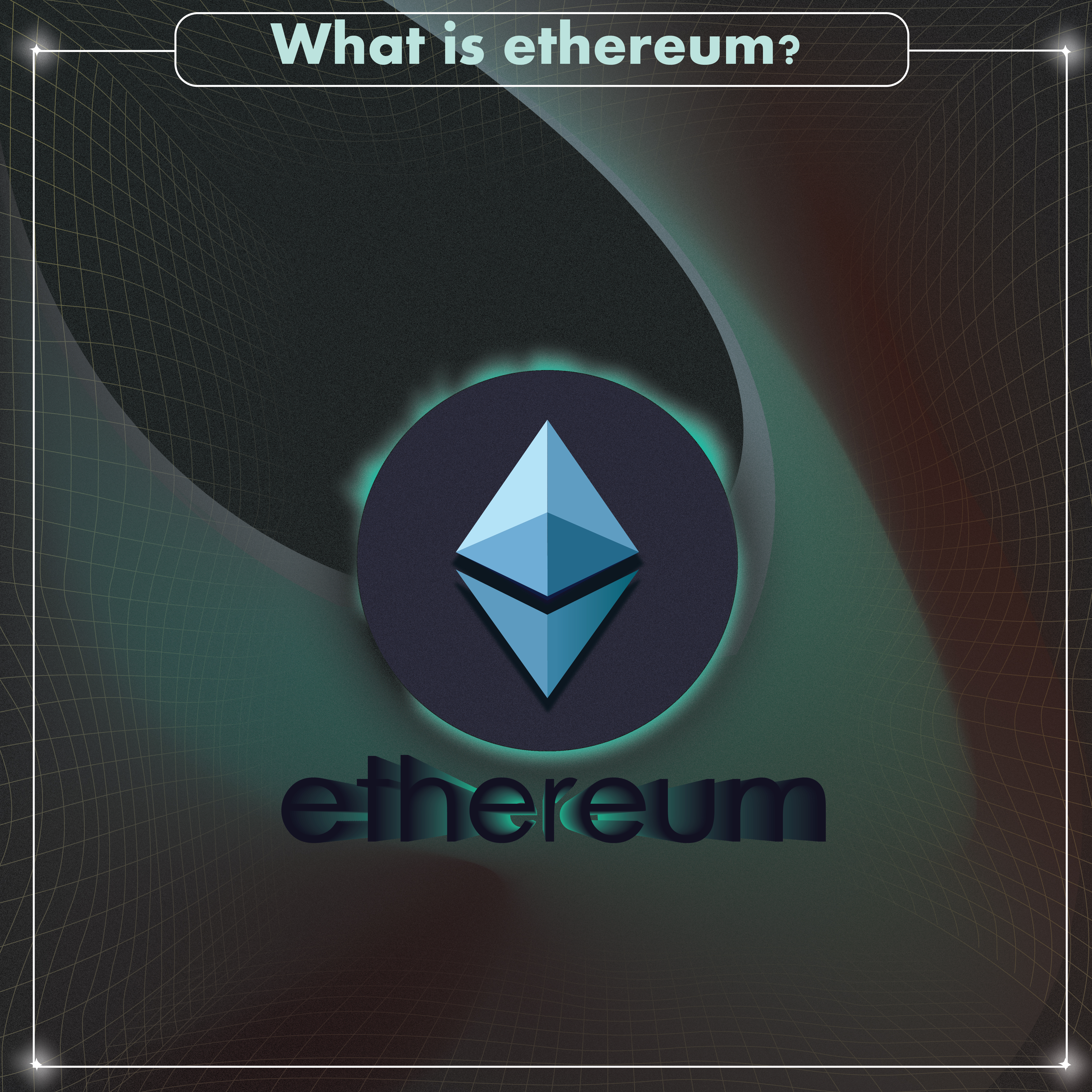
Ether (ETH) is a native cryptocurrency of the Ethereum ecosystem launched in 2015 by Russian programmer Vitalik Buterin. We can describe it as a decentralized software that is being run on blockchain technology. Compared to bitcoin, it is not only the payment method but also the first programmable blockchain. Ethereum was the creator of smart contracts which are a tool for decentralized applications (dApps). In 2014 Vitalik Buterin published a whitepaper of Ethereum, which described all objectives of the project as it was in the whitepaper of bitcoin.
What is the difference between Ether and Ethereum?
Ethereum is a whole protocol and the blockchain, but Ether (ETH) is a currency that powers it.
Distribution of Ethereum
The initial supply of Ethereum was equal to 72 million ETH. More than 50 million were distributed in a public sale called ICO (Initial Coin Offering).
What is Ethereum Used for?
The main use case of Ethereum as a chain is creating decentralized applications, markets, exchanges, etc. Many people also think that ETH might be a great store of value like Bitcoin.
Bitcoin vs Ethereum
As it was described in the "What is bitcoin?" article, that coin was created to introduce a decentralized online payment method. However, the Ethereum blockchain is more than just money. It creates the use of cryptocurrencies in a programmable way, however, the bitcoin blockchain was created only to support the bitcoin cryptocurrency which has no more utilities than just a payment system. The supply of bitcoin is stable at 21 million, however, the supply of Ethereum is not. The amount of ether that can be created is unlimited, however, the time it takes to mine an ETH block limits how many coins can be mined each year. The current supply of ether is more than 120 million. Both cryptocurrencies use proof-of-work consensus mechanisms to create new coins. However, Ethereum is going to move to proof-of-stake soon.
What are smart contracts?
When you hear about contracts, you might be thinking about a piece of paper with all details written on it with the signatures of the parties signing that. A paper itself is not self-executable. The person must execute actions arranged in the contract. Smart contracts are solutions for making it automated. Same as with bitcoin and ether, all transactions are recorded and published on the blockchain, and so do smart contracts! To create one, you do not need any intermediaries, there are only you and other parties whom you are making a contract with. That is why some people say that they may have a huge impact on the lawyer profession.
Please note that: Hotbit does not support smart contracts. For more details click here.
History of smart contracts
The first idea for smart contracts was introduced in 1996. The man who proposed them was Nick Szabo, who also was suspected to be Satoshi Nakamoto. In the essay Smart Contracts: Building Blocks for Digital Markets, he described the objectives of self-executable contracts. However, only after 20 years, smart contracts have been implemented by the Ethereum blockchain. Nowadays, smart contracts are possible to create on various chains or even it is possible to build a contract that communicates between different chains. Other blockchains which use smart contracts are Cardano (ADA), Chainlink (LINK), Binance coin (BNB), and many more…
How do smart contracts work?
As it can be assumed with the fact that smart contracts are based on the blockchain, they may have the same features as blockchain. Indeed, they have! Each contract is transparent and visible for everyone, just like bitcoin transactions. Moreover, it is immutable, so once a contract is deployed, it is not possible to change that, because it has been validated by thousands of nodes in the chain. Now let’s imagine a smart contract that is saved forever in a global network. All conditions are automated and guaranteed by the contract. That structure opens new capabilities for the world’s economy, everyone can make a contract with each other without any intermediaries.
How is new ETH token created?
New ETH tokens are created through the same mining process as with Bitcoin. Users that are mining at a high cost are rewarded with ether.
What is Ethereum gas?
Gas refers to the fee or price value required to successfully complete a transaction or contract on the Ethereum blockchain platform. Priced at a fraction of the cryptocurrency Ether (ETH), commonly referred to as gwei or sometimes nanoeth, this gas allocates resources to Ethereum's Virtual Machine (EVM) so that it can run decentralized applications such as smart contracts in a secure but decentralized way.
The exact price of gas is determined by supply and demand between the network's miners, who can refuse to process transactions if the gas price falls below a threshold.
What are Ethereum tokens?
Probably, you have ever heard about coins like SHIB or USDT. These are examples of tokens based on the Ethereum chain. All rules of governing them are written in the smart contract. The most popular standard of a token is ERC-20 which is used to create cryptocurrencies such as SHIB or USDT mentioned above. However, there are more of them, for example, ERC-721 or ERC-1155 used for NFTs.
Creating the token based on the Ethereum chain is much more convenient and affordable for founders. They do not have to create their own blockchain at the early stage of the project. Moreover, it allows them to experiment with new applications, developing already existing ones. It is possible that some of the best applications have not been created yet.
In the following articles, we will describe many more things related to Ethereum, like Solidity, and Ethereum Virtual Machine, mining, smart contract use cases, dApps, DAOs, and awaited Ethereum 2.0.
Fun-facts about Ethereum
- Vitalik Buterin was 19 years old when he wrote the Ethereum whitepaper
- Ethereum was a crowdfunding project
- The majority of NFTs and newly-created tokens are based on the Ethereum blockchain

Comments
0 comments
Article is closed for comments.